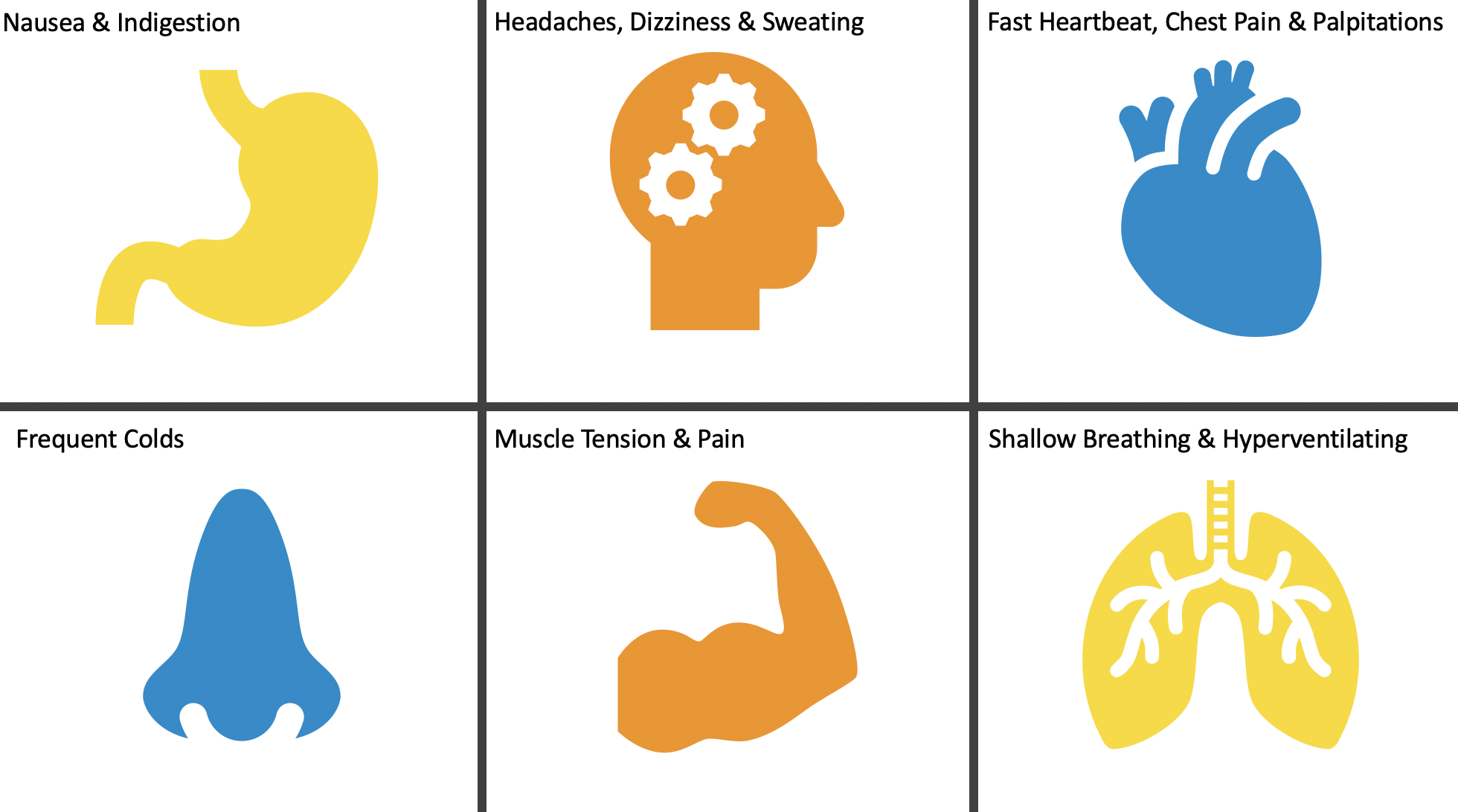The impacts of stress on the body, and learning to cope with it.
In support of Stress Awareness Month and to recognise World Health Day, we are exploring stress; what it is, its impact on the body and mind, and how to reduce the stress in our lives.
In support of Stress Awareness Month and to recognise World Health Day, we are exploring stress; what it is, its impact on the body and mind, and how to reduce the stress in our lives.
What is stress?
At some point in our lives, everyone feels a level of stress, and it can be a good thing. Some people use stress to help them focus on demanding situations or as a means to motivate themselves. For many others stress can be debilitating with serious implications on both physical and mental wellbeing. Everyone deals with stress differently and our ability to cope depends on a variety of factors from genetics to personal circumstances.
Here we focus on what it does to the body, and things that can be done to help with stress.
Recognising physical signs of stress
When we face a stressful situation, the body produces stress hormones. These hormones then trigger a response, fight or flight, as well as activating our immune system, to help us deal with dangerous situations. Sometimes this response is helpful, it can help us push beyond our ‘normal’ capabilities. However too much stress, too often can cause negative effects, leaving us overwhelmed, and long-term affecting our physical and mental health.

As you can see, stress can cause a variety of symptoms and it is not always easy to recognise that stress is the reason behind them. It can be helpful to keep a ‘stress diary’ for a few weeks, note down any stressful situations or symptoms of stress and then review to help you identify those all-important triggers.
Coping with stress
The NHS recommends a variety of ways that can help cope with stress including:
- Talking to friends, family or healthcare professionals
- ‘Stress Busters’ such as
- Being more active – regular exercise to help you clear your thoughts
- Taking control – empower yourself to find a solution to the causes of stress in your life
- Connect with people – build up your support network; relax and laugh with them
- Make time for you – find the time to do the things you really enjoy
- Challenge yourself – set yourself a new goal such as learning a new sport, giving you a focus and building your emotional resilience
- Avoid unhealthy habits - don’t become reliant on alcohol, caffeine or smoking to cope
- Help others – people that make time to support others are in turn more resilient themselves
- Work smarter – prioritise and concentrate on things that will make a difference
- Be positive – look for the things for which you are grateful
- Use time management techniques to take control of life
- Practise calming breathing exercises
- Be sure to plan ahead for the days that you know will be stressful
- Make use of peer support, learn from the experiences of others
- Download and use the variety of mental wellbeing audio guides and relaxation and mindfulness apps from the NHS apps library
Getting NHS help for your stress
Above all else make sure you get professional help if you feel like you need additional support and you can refer yourself without a GP referral, here.
You should see a GP if you are struggling to cope with stress, and the things you have tried to do yourself haven’t helped.
How to find the right care for you or your relative
1. Find your local office
Bluebird Care delivers care from locally based offices, find yours to start your care journey today.
2. Get in touch with us
Fill in our call back form or give us a call to find out how we can help you.
3. Assessment
We’ll come out to you to find out what you or your loved one needs to help stay independent at home.
4. Care team chosen & care starts
You'll be cared for by our specially trained team to support you to remain at home for as long as possible.
Find care near you
Enter your city or postcode below to find your local office


